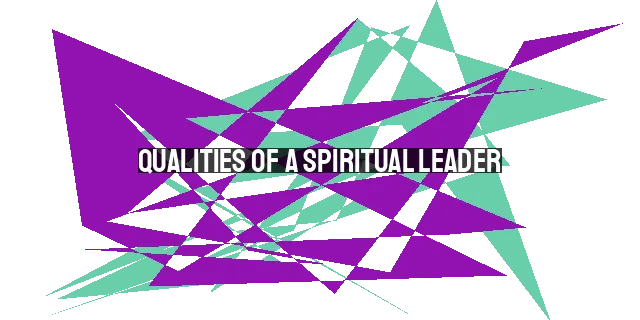Finding True Joy in God: A Biblical Perspective
Does She Spark Joy? - A Biblical Perspective
I didn’t seek out Marie Kondo, but I can’t seem to escape her.
My news feeds, my Netflix previews, even at my women’s ministry meeting at church, there she is. It’s as if everyone is announcing that she has been raised up for such a time as this. Her mission? The decluttering of our households.
Kondo launched a new documentary based upon her organization process, popularized by her international best-selling book The Life-Changing Magic of Tidying Up: The Japanese Art of Decluttering and Organizing. Her method, however, is not merely about finding new tricks for storage, or encouragement towards a yearly Goodwill donation. Instead, her call is for people to move through their possessions item by item, asking a simple question: Does this spark joy in you? If yes, it stays. If no, it leaves. What could be simpler than that?
The Quest for Joy
As humans, we all long for joy. We search for it in various places, hoping that the next new thing will finally bring us lasting happiness. We accumulate possessions, seeking joy in material abundance. We pursue relationships, hoping to find joy in the love and approval of others. We chase after success and achievements, believing they will bring us joy and fulfillment.
But what if true joy cannot be found in the accumulation of stuff or in the opinions of others? What if, instead, joy is found in something deeper and more substantial?
The Biblical View of Joy
The Bible has much to say about joy. It presents joy as a fruit of the Holy Spirit (Galatians 5:22) and as a characteristic of a life lived in harmony with God (Romans 14:17). It teaches that true joy is found in a relationship with God and in the hope of eternal life through Jesus Christ (Romans 15:13).
In Psalm 16:11, David writes, "You make known to me the path of life; in your presence there is fullness of joy; at your right hand are pleasures forevermore." This verse reminds us that true joy is found in the presence of God. It is not dependent on our circumstances or possessions, but on our relationship with Him.
Seeking Joy in Possessions
Marie Kondo's question, "Does this spark joy?" can be helpful in evaluating our possessions, but it should not be the ultimate criterion for our happiness. While it is important to have a tidy and organized living space, we must not place our ultimate hope and joy in material things.
Jesus warns against the pursuit of earthly treasures in Matthew 6:19-21: "Do not lay up for yourselves treasures on earth, where moth and rust destroy and where thieves break in and steal, but lay up for yourselves treasures in heaven, where neither moth nor rust destroys and where thieves do not break in and steal. For where your treasure is, there your heart will be also."
Our true treasure, our ultimate source of joy, is found in our relationship with God. The things of this world may bring temporary happiness, but they can never satisfy the deep longing for joy that resides within us.
Seeking Joy in Relationships
Another area where we often seek joy is in our relationships with others. We long for love, acceptance, and affirmation from those around us. While healthy relationships can bring joy into our lives, they can also disappoint and hurt us.
God's Word encourages us to find our ultimate joy and satisfaction in Him, rather than in the opinions and approval of others. In Psalm 118:8-9, the psalmist writes, "It is better to take refuge in the LORD than to trust in man. It is better to take refuge in the LORD than to trust in princes."
When we place our trust and hope in God, we are not dependent on the ever-changing opinions and actions of people. We can find security and true joy in the unchanging love and faithfulness of our Heavenly Father.
The Joy of Contentment
Ultimately, true joy is found in contentment. The apostle Paul writes in Philippians 4:11-13, "Not that I am speaking of being in need, for I have learned in whatever situation I am to be content. I know how to be brought low, and I know how to abound. In any and every circumstance, I have learned the secret of facing plenty and hunger, abundance and need. I can do all things through him who strengthens me."
Paul's contentment did not come from his circumstances or possessions. It came from his unwavering trust in God's provision and his deep relationship with Christ. He understood that true joy is not dependent on external factors, but on an internal state of contentment.
In our consumer-driven society, the idea of contentment may seem counter-cultural. We are constantly bombarded with messages telling us that we need more to be happy. But the truth is, joy is not found in the pursuit of more, but in the discovery of what truly matters.
Conclusion
While Marie Kondo's question, "Does this spark joy?" can be a helpful tool in decluttering our physical spaces, as Christians, we must remember that true joy cannot be found in possessions or even in earthly relationships. True joy is found in a relationship with God and in the contentment that comes from trusting in Him.
As we evaluate our possessions and relationships, let us ask ourselves not only if they spark joy, but if they align with God's Word and contribute to our ultimate joy and fulfillment in Him. Let us seek to live lives that are marked by the fruit of the Spirit, including the joy that comes from knowing and walking with our Savior.
May we find true joy in the presence of God, in the hope of eternal life, and in the contentment that comes from trusting in Him alone.



POST COMMENT
For post a new comment. You need to login first. Login
COMMENTS(0)
No Comment yet. Be the first :)